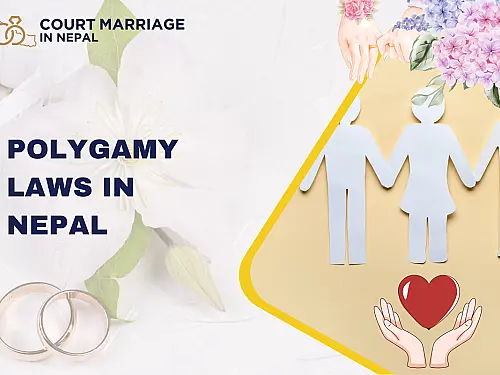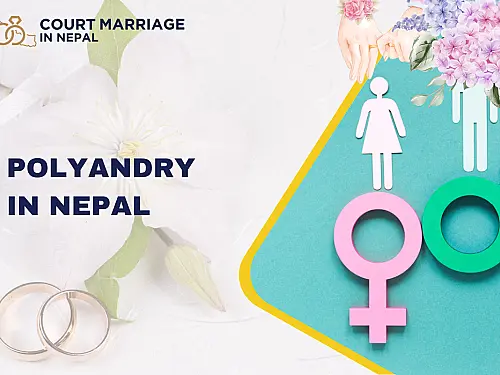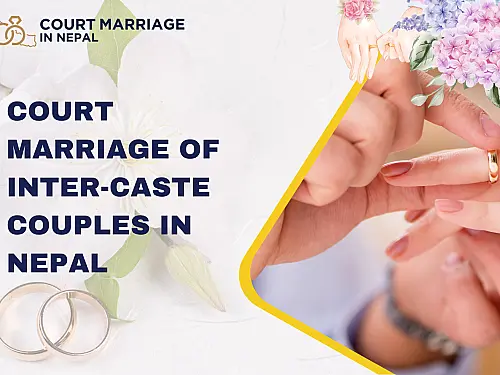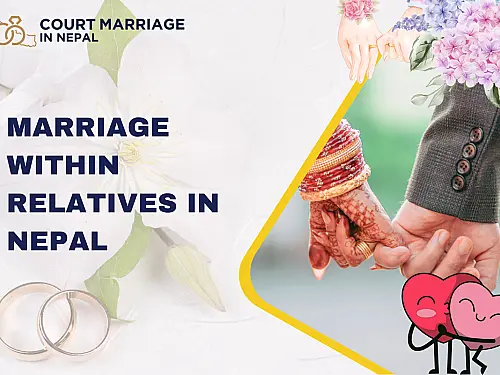Table of Contents
Court marriage in Nepal is conducted in the District Courts, allowing couples to register their marriage legally. Nepal's court system has been decentralized across its 77 districts, making it easier for couples to access this essential service regardless of their location. Court marriages are inclusive, disregarding caste, religion, or creed, and only require the couple to meet the legal conditions for marriage registration.
Since Nepal transitioned to a federal structure, its districts are now categorized under seven provinces. Let’s break down where you can go for court marriage based on Nepal’s provinces:
Province 1
Province 1 includes mountainous and urban districts, making legal services accessible to most people.
- Taplejung District Court
- Panchthar District Court
- Ilam District Court
- Jhapa District Court
- Morang District Court
- Sunsari District Court
- Dhankuta District Court
- Sankhuwasabha District Court
- Bhojpur District Court
- Terhathum District Court
- Okhaldhunga District Court
- Khotang District Court
- Solukhumbu District Court
- Udayapur District Court
Madhesh Province
Madhesh Province is known for its cultural and religious diversity. The courts here ensure easy access to marriage registration services.
- Saptari District Court
- Siraha District Court
- Dhanusha District Court
- Mahottari District Court
- Sarlahi District Court
- Rautahat District Court
- Bara District Court
- Parsa District Court
Bagmati Province
Bagmati Province includes Nepal’s capital, Kathmandu, which houses one of the busiest District Courts. This province is the hub of legal services.
- Sindhuli District Court
- Ramechhap District Court
- Dolakha District Court
- Sindhupalchok District Court
- Kavrepalanchok District Court
- Lalitpur District Court
- Bhaktapur District Court
- Kathmandu District Court
- Nuwakot District Court
- Rasuwa District Court
- Dhading District Court
- Makwanpur District Court
Gandaki Province
Gandaki Province is famous for its scenic beauty and access to judicial services for both locals and tourists wishing to marry.
- Gorkha District Court
- Lamjung District Court
- Tanahun District Court
- Syangja District Court
- Kaski District Court
- Manang District Court
- Mustang District Court
- Parbat District Court
- Myagdi District Court
- Baglung District Court
Lumbini Province
Lumbini Province, the birthplace of Lord Buddha, also serves as a vital area for court marriage registrations.
- Gulmi District Court
- Palpa District Court
- Nawalpur District Court
- Parasi District Court
- Rupandehi District Court
- Arghakhanchi District Court
- Kapilvastu District Court
- Pyuthan District Court
- Rolpa District Court
- Rukum East (Purba) District Court
Karnali Province
Karnali, though geographically remote, provides court marriage services in its district courts.
- Rukum West (Paschim) District Court
- Salyan District Court
- Dailekh District Court
- Surkhet District Court
- Jumla District Court
- Kalikot District Court
- Dolpa District Court
- Mugu District Court
- Humla District Court
Sudurpashchim Province
Sudurpashchim is a region rich in natural resources and now offers access to marriage registration across its districts.
- Bajura District Court
- Bajhang District Court
- Achham District Court
- Doti District Court
- Kailali District Court
- Kanchanpur District Court
- Dadeldhura District Court
- Baitadi District Court
- Darchula District Court
Key Steps for Court Marriage Registration
If you’re planning to register a court marriage, follow these steps:
Fulfill Eligibility Criteria: Ensure both parties meet the following legal requirements:
- Both individuals must consent to the marriage.
- Neither party should be married to someone else.
- The couple should not be related by blood as per the law.
- Both individuals must be at least 20 years old.
Collect Required Documents:
- Application form, duly filled and signed by both applicants.
- Original and notarized copies of citizenship certificates.
- Original and notarized copies of witnesses’ citizenship certificates.
- Letters from local ward offices certifying single/unmarried status.
- Temporary residency letters if applying in a district where you don’t permanently reside.
- Four passport-sized photographs of each applicant.
- Bank voucher of NPR 500 as a court fee.
- For foreign citizens: No objection letter, marriage laws of their home country (translated into Nepali and notarized).
Submit the Application: Visit the district court with all necessary documents and submit your application.
Verification Process: The court will verify your documents and provide you with a date for the marriage.
Marriage Ceremony at Court: On the assigned date, both applicants, along with their witnesses, must appear before the court. Once the paperwork is signed and approved by the judge, the court will issue a marriage certificate.
Benefits of Court Marriage in Nepal
- Legal Validity: A court-registered marriage is recognized by law, offering couples legal protection.
- Accessibility: With courts in every district, couples can register their marriage in their province or any district of their choice.
- Inclusivity: Court marriages are not bound by caste, religion, or ethnicity, promoting equality.
Conclusion
Whether you're in the bustling streets of Kathmandu, the serene hills of Pokhara, or the remote valleys of Karnali, court marriage in Nepal is accessible and straightforward. By adhering to the legal requirements and following the court's procedure, you can legally tie the knot in any district court across Nepal's seven provinces.
Marriage is a significant milestone, and ensuring its legal recognition through court registration is a wise and responsible decision. If you have questions or need assistance, feel free to consult a family lawyer or visit your nearest District Court to begin the process.
At Court Marriage In Nepal, a registered law firm operating as Court Marriage In Nepal Pvt. Ltd., we specialize exclusively in Court Marriage Nepal. As the first law firm in Nepal dedicated to court marriage services, we assist both Nepali citizens and foreign nationals with the court marriage registration process in Nepal, including complete legal support for court marriage registration for foreign citizens in Nepal. As a trusted marriage firm in Nepal and a licensed law firm in Nepal, we ensure a smooth, lawful, and stress-free experience. Contact us today for confidential assistance with court marriage registration in Nepal.






